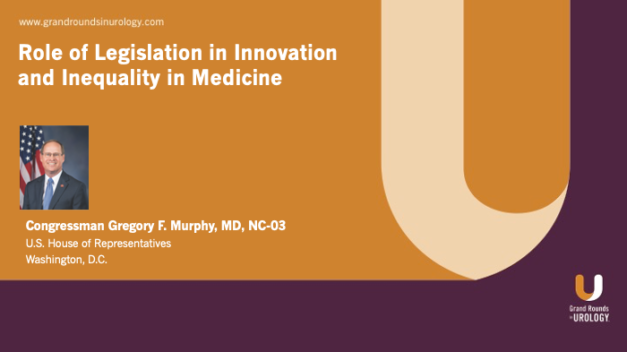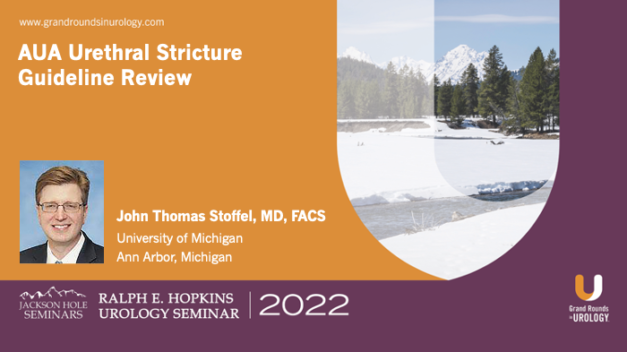The Role of Legislation in Innovation and Inequality in Medicine
Congressman Gregory F. Murphy, MD, a practicing urologist and the Representative from North Carolina’s 3rd District, speaks with E. David Crawford, MD, concerning the federal approval process for new medical treatments and racial inequality in medicine. The two note that prior to the Covid-19 vaccine it could take a long time to get a treatment approved, and that the Covid-19 vaccine set a new precedent for timelines where medical treatments can reach the general population. Next, Rep. Murphy discusses racial inequity in medicine, specifically how he believes medicine has become an instrument for politics. He states that the focus should be on patients getting the treatment they need, as well as allowing an open opportunity for qualified candidates to get into medical school and enter the profession. Rep. Murphy also discusses his belief that public faith in medicine has plummeted since the Covid-19 pandemic. Rep. Murphy continues by stating that due to the tragedy of the Tuskegee vaccine issues, the black community has a lot of reluctance getting vaccines. Both agree that it is important to remove politics from medicine and for politicians to work on issues in medicine in a bipartisan manner.
Read More



